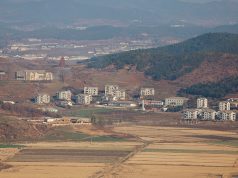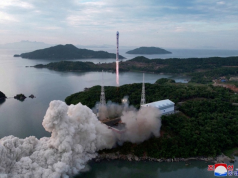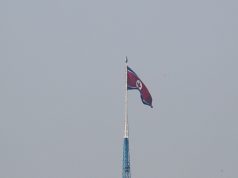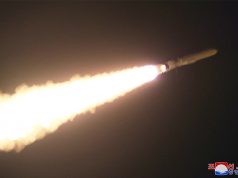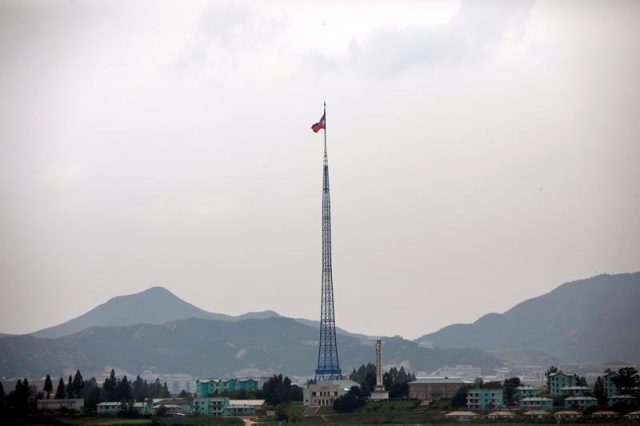
WASHINGTON — U.S. officials said on Tuesday they have seen increased North Korean activity at a site in the western city of Kusong that could be preparations for another missile test within days.
The officials, speaking on condition of anonymity, said that over the past week intelligence has spotted equipment, possibly for launching an intercontinental ballistic missile or an intermediate-range missile, moving into Kusong.
Earlier this month, North Korea said it had conducted its first test of an ICBM and mastered the technology needed to deploy a nuclear warhead via the missile.
Pyongyang’s state media said the test verified the atmospheric re-entry of the warhead, which experts say may be able to reach the U.S. state of Alaska.
However, the vice chairman of the U.S. Joint Chiefs of Staff recently said the July 4 test stopped short of showing North Korea has the ability to strike the United States “with any degree of accuracy.”
The Washington Post reported on Tuesday that the Defense Intelligence Agency, the Pentagon spy agency, has assessed that North Korea will be able to field a nuclear-capable ICBM by next year, earlier than previously thought.
According to two U.S. officials, however, some other analysts who study North Korea’s missile program do not agree with the DIA assessment.
“DIA and the South Koreans tend to be at the leading edge of estimates on North Korea’s military programs, and that’s understandable,” said one of the U.S. officials, who both agreed to speak only on the condition of anonymity. “There is no question that the DPRK has moved further and faster with its effort to develop a reliable, nuclear-capable ICBM that can be built in quantity, but there are still doubts about whether it can cross that threshold in a year.”
A second U.S. official familiar with the science of ICBMs said, also on the condition of anonymity, that North Korea still has not demonstrated the ability to design and build nuclear warheads small enough to be delivered on its long-range missiles and tough enough to survive re-entry into the atmosphere.
A third official, who also spoke on condition of anonymity, said that even if Pyongyang develops a workable ICBM from its “tinker-toy mix of old Russian missiles,” it would pose a threat to the United States and its allies only if North Korean leader Kim Jong Un’s regime is suicidal.




